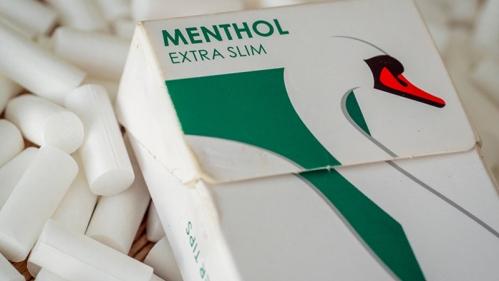Rutgers researchers find tobacco companies’ deceptive lobbying and sales activities are rarely perceived by the communities they target
After decades of deception, Black adults who smoke menthol cigarettes are often unaware of the deceitful ways tobacco companies market their products to them, according to a Rutgers study.
“Evidence shows that the tobacco industry engages in predatory marketing tactics and that companies push certain products on specific groups,” said Kymberle L. Sterling, an associate professor at the Rutgers School of Public Health and lead author of the study published in Nicotine and Tobacco Research. “The tobacco industry uses these predatory methods to target Black communities with menthol cigarettes, and many consumers are simply unaware.”
The findings come as a federal pledge to ban menthol cigarettes languishes. In April 2022, the U.S. Food and Drug Administration disclosed plans to enact a menthol ban by August 2023, but the measure remains stalled. This month, a coalition of medical and civil rights groups sued the FDA for inaction.
Since the end of World War II, tobacco companies in the United States have pushed menthol products on Black communities. Today, an estimated 81 percent of Black cigarette-smokers smoke menthols, compared with 34 percent of whites and 51 percent of Hispanics.
To gauge perceptions of how tobacco companies engage with and market menthol cigarettes to Black communities, and to help inform public health solutions, Sterling and colleagues at the Rutgers Institute for Nicotine and Tobacco Studies surveyed more than 2,300 adults age 18-45. The survey, part of the Rutgers Omnibus Study, a multiyear survey to assess tobacco behaviors and patterns, was designed to measure Americans’ smoking habits and beliefs.
Respondents were asked a series of questions related to their awareness of tobacco company engagement strategies. Topics included knowledge of companies’ lobbying and marketing and funding for Black community organizations.
Each issue has been well documented in the national media: Tobacco companies have enlisted prominent Black leaders to lobby against a federal menthol ban; denied the harmfulness of menthol cigarettes and flavored cigars; and used cultural icons to promote their products.
Prominent Black cultural institutions, such as the National Museum of African American History and Culture, have received funding from companies such as Altria, one of the world's largest producers and marketers of tobacco, cigarettes and related products.
Yet results from Sterling’s study suggest industry marketing efforts are working. A third (37 percent) of respondents said tobacco companies deny the harms of menthol cigarettes; 20 percent said companies pay Black lobbyists to oppose health policies; and 12 percent said that companies fund Black community organizations.
While many respondents recognized that tobacco companies target their marketing of menthol cigarettes and flavored cigars to Black communities, “there was high uncertainty among [Black] respondents and menthol cigarette smokers about tobacco company activities beyond marketing,” the researchers wrote.
“To borrow a saying from my grandmother, tobacco companies are throwing rocks and hiding their hands,” Sterling said.
Sterling said as the tobacco industry wages a war of public perception and the federal government refuses to act, it’s up to state and local leaders to respond.
“The high proportion of uncertainty and lack of awareness identified in this study presents a tremendous opportunity for communication efforts to educate the public on tobacco companies’ disinformation activities,” the researchers wrote. “Community-engaged, culturally tailored communication efforts are needed to better educate the public about tobacco industry activities that impact Black/African American communities.”
The study was funded by the National Institute on Minority Health and Health Disparities of the National Institutes of Health.




